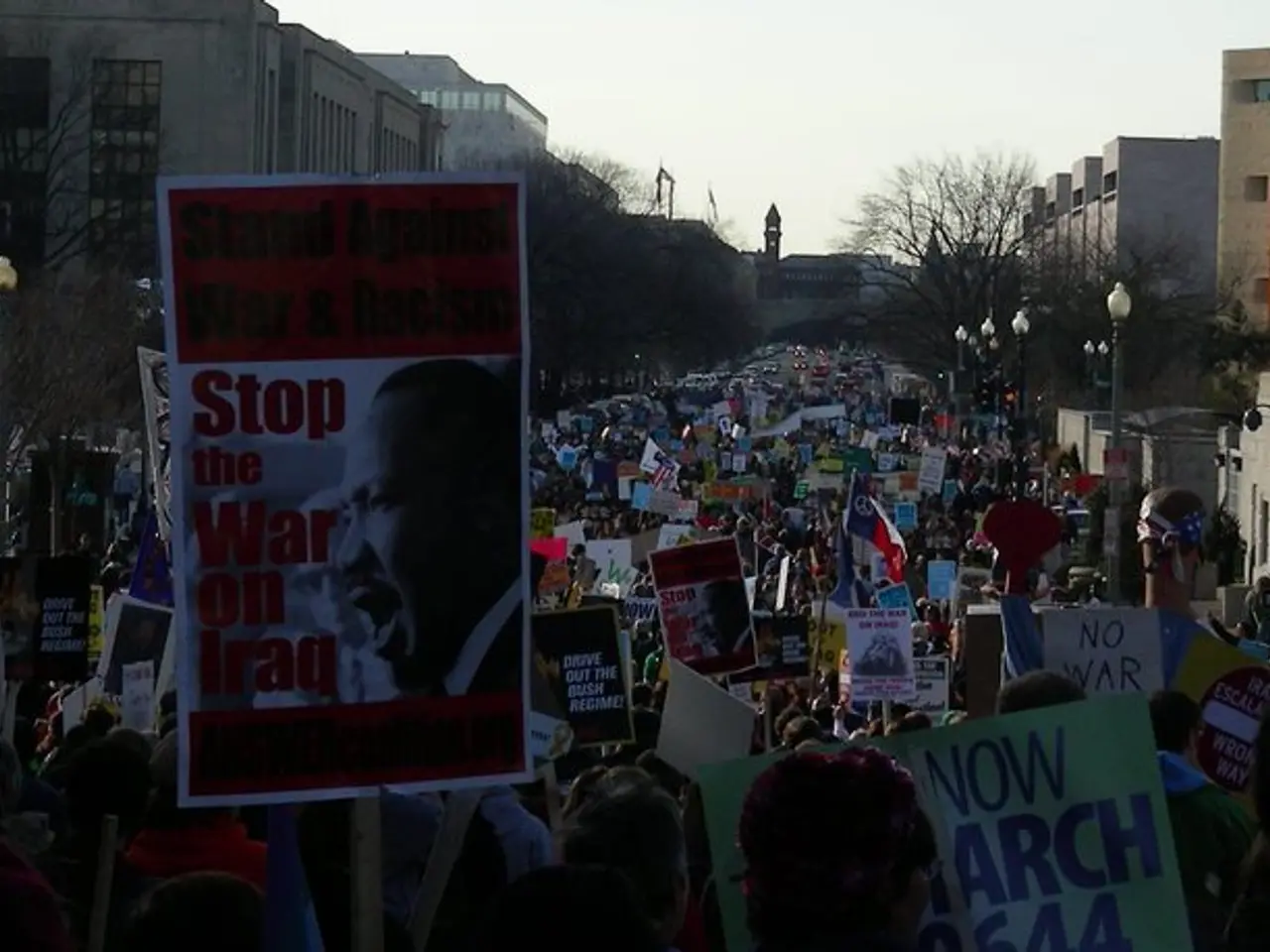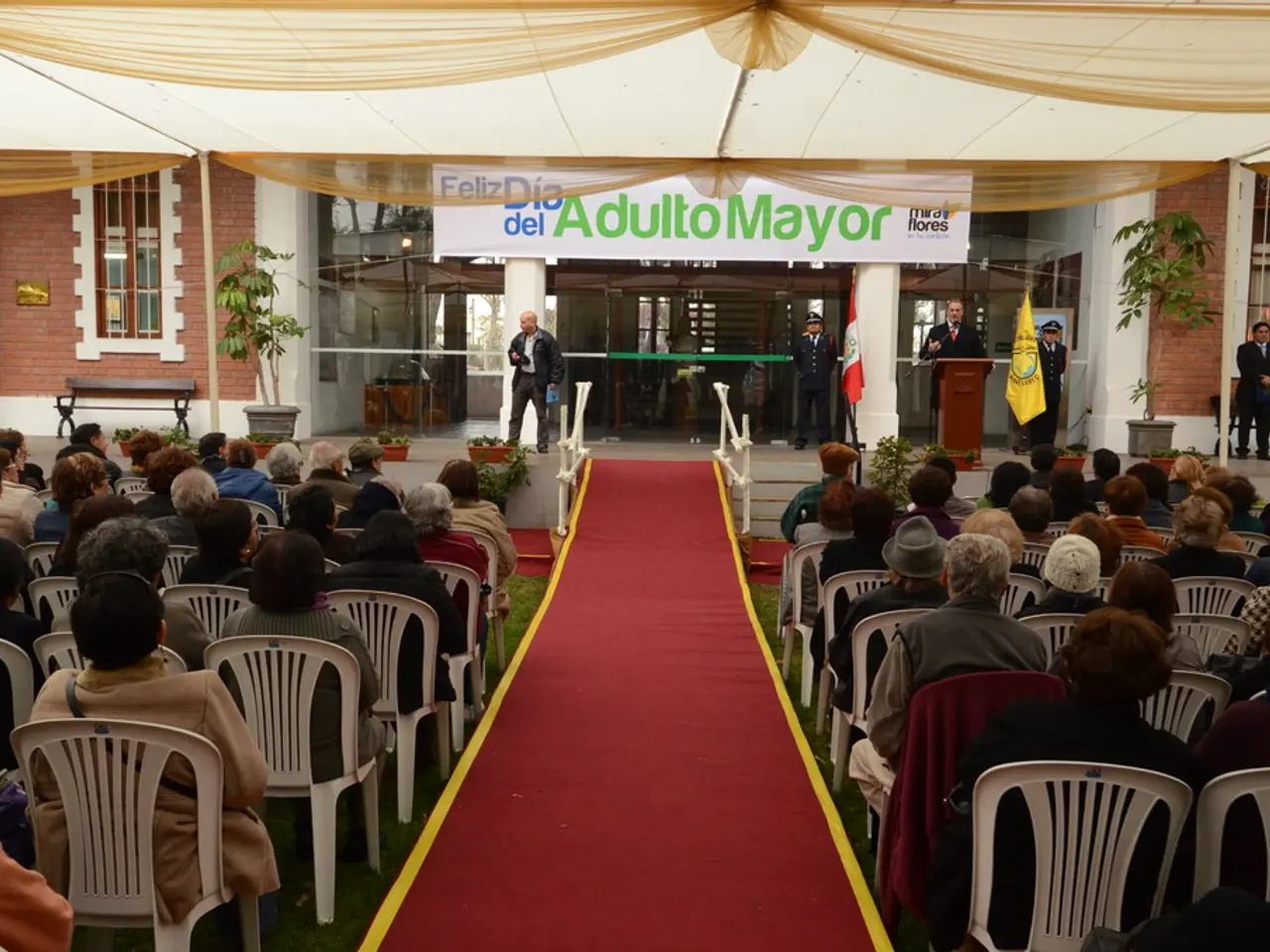Nuclear advancements of Iran delayed by a year to two years due to bombings, as per the latest statement from the Pentagon
In a historic operation named Operation Midnight Hammer, American B-2 stealth bombers, along with a guided missile submarine, launched airstrikes on three key Iranian nuclear sites last month. The targets were the underground facilities at Fordo, Isfahan, and Natanz, where massive "bunker buster" bombs were dropped, causing significant physical damage to centrifuge cascades.
According to the Pentagon, the U.S. airstrikes have degraded Iran’s nuclear capability by up to two years, destroying key components and facilities necessary for building a nuclear bomb. The Joint Chiefs of Staff Chair, Gen. Dan Caine, reported that all three targeted sites sustained extremely severe damage and destruction.
However, the Defense Intelligence Agency's preliminary assessment suggests that the setback might be more limited, perhaps just several months, noting that Iran might restore some centrifuge cascades within months. The International Atomic Energy Agency (IAEA) director pointed out that while many centrifuges suffered significant physical damage, a few cascades might soon resume operation.
The impact of the airstrikes extends beyond physical destruction, with a strong psychological toll on the Iranian leadership, potentially reducing their ambition for a nuclear bomb. However, Iran has enacted a law to suspend cooperation with the United Nations' nuclear watchdog, shutting out international inspectors from overseeing its contested nuclear program.
As the situation evolves, analysts caution that Iran still retains some capacity to rebuild, though on a delayed timeline. The recovery timeline for some centrifuges is estimated to be in months, while full rebuild of the nuclear program will take much longer, involving not only centrifuge operation but also laboratories, manufacturing, testing, and educational infrastructure.
The U.S. Defense Secretary, Pete Hegseth, echoed President Trump's language, stating that the bombing campaign obliterated Iran's ability to create nuclear weapons. President Trump continues to insist that the bombing had obliterated Tehran's nuclear program. U.S. allies are reportedly buoyed by the latest assessment regarding the impact of the bombing on Iran's nuclear program.
Sean Parnell, the Pentagon's chief spokesperson, stated that American and Israeli bombing campaigns have set back Iran's nuclear program by one to two years. However, Parnell did not present a formal Defense Department battle damage assessment. Iranian state media reported that Iran has enacted a law to suspend cooperation with the United Nations' nuclear watchdog.
In summary, while the airstrikes have substantially set back Iran’s nuclear program and have degraded its immediate capability, analysts caution that Iran still retains some capacity to rebuild, though on a delayed timeline. The impact of the Israeli bombing campaign on nuclear scientists and military brass, combined with the U.S. strikes, aims to decisively end Iran’s nuclear weapons ambitions, but this remains a complex and evolving situation.
[1] Pentagon Press Briefing, 1st July 2025 [2] White House Statement, 1st July 2025 [3] International Atomic Energy Agency Report, 5th July 2025
- The U.S. airstrikes, as part of Operation Midnight Hammer, have prompted a shift in the political landscape, with America's allies viewing the impact on Iran's nuclear program with optimism.
- Beyond the physical destruction, the psychological impact of the airstrikes on the Iranian leadership may potentially diminish their intentions for a nuclear bomb, influencing the broader politics of war-and-conflicts and policy-and-legislation.
- The community of nuclear experts and analysts concur that, although the airstrikes have significantly set back Iran’s nuclear program, the recovery process, involving various facilities and infrastructure, might take months to years, necessitating continued vigilance and policy-and-legislation.








